CORPORATE ACTION: Clorox
Clorox Aims To Reduce Plastic In Packaging And Promote Product Sustainability
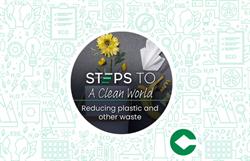 Clorox’s senior director of sustainability, Alexis Limberakis, said his company is focusing on reducing plastic and other waste in packaging as part of its IGNITE strategy. Limberakis also highlighted how Clorox has recognized the importance of “being good stewards” of the world’s finite resources, as well as the environmental footprint in manufacturing the company’s products. This strategy serves as Clorox’s guidelines as it aims to reduce by 50 percent its use of virgin plastic and fiber packaging by 2030, and achieve 100 percent recyclable, reusable or compostable packaging by 2025.[Image Credit: © The Clorox Company/3BL MEDIA, Inc.]
Clorox’s senior director of sustainability, Alexis Limberakis, said his company is focusing on reducing plastic and other waste in packaging as part of its IGNITE strategy. Limberakis also highlighted how Clorox has recognized the importance of “being good stewards” of the world’s finite resources, as well as the environmental footprint in manufacturing the company’s products. This strategy serves as Clorox’s guidelines as it aims to reduce by 50 percent its use of virgin plastic and fiber packaging by 2030, and achieve 100 percent recyclable, reusable or compostable packaging by 2025.[Image Credit: © The Clorox Company/3BL MEDIA, Inc.]
CORPORATE ACTION: Coca-Cola
Milk and More Tests Doorstep Delivery-And-Collection Service For Coca-Cola Zero Sugar Drinks In UK
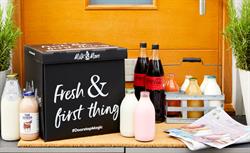 Online milk and grocery home delivery company Milk & More has partnered with Coca-Cola Europacific Partners to test a delivery, return, refill and reuse service for Coca-Cola Zero Sugar glass bottles in the UK. Set to start on June 5, 2023, the trial will run for eight to twelve weeks, or while supplies last. The online company’s customers in South London and Central Southern England who buy 1-liter glass bottles of the soda can leave their rinsed bottles on their doorstep for collection.[Image Credit: © Coca-Cola Europacific Partners]
Online milk and grocery home delivery company Milk & More has partnered with Coca-Cola Europacific Partners to test a delivery, return, refill and reuse service for Coca-Cola Zero Sugar glass bottles in the UK. Set to start on June 5, 2023, the trial will run for eight to twelve weeks, or while supplies last. The online company’s customers in South London and Central Southern England who buy 1-liter glass bottles of the soda can leave their rinsed bottles on their doorstep for collection.[Image Credit: © Coca-Cola Europacific Partners]
CORPORATE ACTION: Henkel
Henkel And Plastic Bank Join Forces To Keep Plastic Waste Off Egypt’s Seas
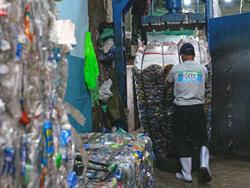
Henkel Egypt and Plastic Bank have announced that their partnership has helped prevent more than 10 million kilograms of plastic, or more than 500 million plastic bottles, from getting into Egypt’s seas. Henkel Egypt supports Plastic Bank’s sustainability work in the country by adopting environment-friendly business practices. It also helps Plastic Bank in supporting local businesses to put up collection branches in convenient locations and empower collection communities.[Image Credit: © Henkel AG & Co. KGaA ]
CORPORATE ACTION: Lidl
Lidl Adds Ocean-Bound Plastic To Bottles Of Own-Brand Mineral Water

Lidl UK has announced plans to include 30 percent Prevented Ocean Plastic recycled plastic into its 1-liter San Celestino Italian Sparkling Mineral Water bottles. The company expects the initiative to prevent almost 100 tonnes of plastic, or 4 million plastic water bottles, from reaching the oceans. The discount retailer is also changing the caps of milk bottles it sells from colored to clear to improve their recyclability.[Image Credit: © Lidl GB]
CORPORATE ACTION: Procter & Gamble
Dow Partners With Procter & Gamble China To Create Air Capsule For Ecommerce Packaging
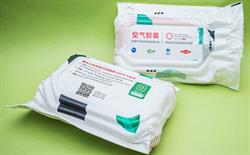 Dow has announced its collaboration with Procter & Gamble China to develop an air capsule for ecommerce packaging. The air capsule is a result of combining P&G China’s innovation with Dow’s materials and is designed to enhance sustainability and environment-friendliness while protecting products. Also, the air capsule has 40 percent lower material weight than conventional corrugated parcel boxes, requiring only 25 percent of original trucking and 75 percent less warehouse space. By using Dow’s ELITE AT high-performance PE resins, the air capsule provides gas barrier performance comparable with traditional packaging, removing the need for nylon in the formulation.[Image Credit: © Dow]
Dow has announced its collaboration with Procter & Gamble China to develop an air capsule for ecommerce packaging. The air capsule is a result of combining P&G China’s innovation with Dow’s materials and is designed to enhance sustainability and environment-friendliness while protecting products. Also, the air capsule has 40 percent lower material weight than conventional corrugated parcel boxes, requiring only 25 percent of original trucking and 75 percent less warehouse space. By using Dow’s ELITE AT high-performance PE resins, the air capsule provides gas barrier performance comparable with traditional packaging, removing the need for nylon in the formulation.[Image Credit: © Dow]
P&G Sustainability Boss Describes Company’s Science-Based Approach To Sustainability
 Procter & Gamble’s chief sustainability officer, Virginie Helias, said her company has always taken a science-based approach to sustainability. P&G has had an environmental science department for more than 50 years, Helias said, adding that P&G is focusing on collaborating with other companies from different industries, as well as with other groups from private and public sectors to deal with sustainability challenges. According to Helias, 79 percent of P&G’s consumer packaging was designed to be recyclable or reusable at the end of the fiscal year ending June 30, 2022.[Image Credit: © Procter & Gamble]
Procter & Gamble’s chief sustainability officer, Virginie Helias, said her company has always taken a science-based approach to sustainability. P&G has had an environmental science department for more than 50 years, Helias said, adding that P&G is focusing on collaborating with other companies from different industries, as well as with other groups from private and public sectors to deal with sustainability challenges. According to Helias, 79 percent of P&G’s consumer packaging was designed to be recyclable or reusable at the end of the fiscal year ending June 30, 2022.[Image Credit: © Procter & Gamble]
CORPORATE ACTION: Unilever
Unilever Bangladesh Signs MoU With Chattogram City Corporation To Promote Circular Plastic Economy
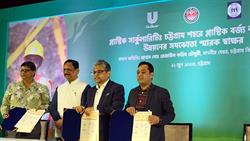 Unilever Bangladesh Limited signed a memorandum of understanding with Chattogram City Corporation and Young Power in Social Action to help promote plastic circularity. The partnership aims to deal with plastic pollution by keeping plastic in a loop. Unilever Bangladesh has been working with YPSA since 2022 to improve the informal value chain and expand plastic waste collection in the country.[Image Credit: © YPSA]
Unilever Bangladesh Limited signed a memorandum of understanding with Chattogram City Corporation and Young Power in Social Action to help promote plastic circularity. The partnership aims to deal with plastic pollution by keeping plastic in a loop. Unilever Bangladesh has been working with YPSA since 2022 to improve the informal value chain and expand plastic waste collection in the country.[Image Credit: © YPSA]
Unilever Agrees To Work With BUET To Research Sustainability Issues In Bangladesh
 Unilever Bangladesh Limited has entered into a research collaboration agreement with the Research and Innovation Center for Science and Engineering of Bangladesh University of Engineering and Technology. As part of the agreement, UBL is awarded a research project focusing on plastic packaging circularity in Bangladesh. The collaboration deal will also look at dealing with environmental challenges and promoting sustainability in the country.[Image Credit: © Unilever]
Unilever Bangladesh Limited has entered into a research collaboration agreement with the Research and Innovation Center for Science and Engineering of Bangladesh University of Engineering and Technology. As part of the agreement, UBL is awarded a research project focusing on plastic packaging circularity in Bangladesh. The collaboration deal will also look at dealing with environmental challenges and promoting sustainability in the country.[Image Credit: © Unilever]
CORPORATE ACTION: Other
Plastic Pollution Exhibit Comes To Chicago’s Museum Of Science And Industry
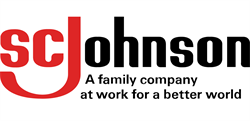 SC Johnson has partnered with Conservation International to bring The Blue Paradox exhibit to the Museum of Science and Industry in Chicago. First launched in London in 2021, the exhibit is designed to allow museum visitors to experience the impact of plastic pollution on the planet’s oceans. The exhibit is also expected to inspire the public to help in fighting plastic pollution and promote sustainability.[Image Credit: © S.C. Johnson & Son Inc.]
SC Johnson has partnered with Conservation International to bring The Blue Paradox exhibit to the Museum of Science and Industry in Chicago. First launched in London in 2021, the exhibit is designed to allow museum visitors to experience the impact of plastic pollution on the planet’s oceans. The exhibit is also expected to inspire the public to help in fighting plastic pollution and promote sustainability.[Image Credit: © S.C. Johnson & Son Inc.]
Absolut Vodka Test-Markets Paper Bottles In Greater Manchester
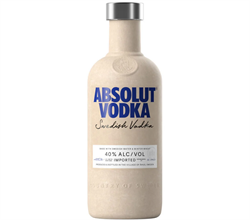
Absolut Vodka is starting a three-month test for a 500ml-sized single-mold paper bottles to be sold in 22 Tesco stores in Greater Manchester during summer 2023. The paper bottles are made from 57 percent paper with an integrated barrier made of recyclable plastic. The liquor brand worked with the Paper Bottle Company in developing the paper bottle and other global brands that are collaborating to help the industry come up with sustainable packaging.[Image Credit: © The Absolut Company]
CONSUMER & PUBLIC OPINION
Majority Of UK Consumers Prefer To Buy Products In Prefilled Returnable Packaging
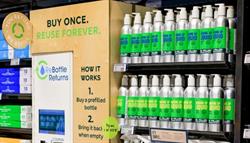 In the UK, 53 percent of consumers said they prefer to buy from brands that offer products in prefilled returnable packaging. Data from the report, “Ready to prefill? Market innovation to unlock growth in the market,” also revealed that this figure goes up to 84 percent among consumers who had earlier bought products in returnable packaging. Also, 69 percent of respondents said they are likely or very likely to try products in returnable packaging, according to the report partially funded by UK Research and Innovation’s Smart Sustainable Plastic Packaging initiative.[Image Credit: © City to Sea]
In the UK, 53 percent of consumers said they prefer to buy from brands that offer products in prefilled returnable packaging. Data from the report, “Ready to prefill? Market innovation to unlock growth in the market,” also revealed that this figure goes up to 84 percent among consumers who had earlier bought products in returnable packaging. Also, 69 percent of respondents said they are likely or very likely to try products in returnable packaging, according to the report partially funded by UK Research and Innovation’s Smart Sustainable Plastic Packaging initiative.[Image Credit: © City to Sea]
Survey Shows Consumers Demand More Sustainability From Beauty Industry
 Consumers are demanding more sustainable industry practices, including environment-friendly packaging, from manufacturers of beauty products. Results of the survey of more than 16,000 consumers in 16 countries conducted by ESW Global Voices revealed that sustainability is an important consideration for 87 percent of respondents, rising to 94 percent for consumers who buy beauty products across international borders. Also, survey results showed that 63 percent have paid more for sustainable products.[Image Credit: © Kristina Balić on Unsplash]
Consumers are demanding more sustainable industry practices, including environment-friendly packaging, from manufacturers of beauty products. Results of the survey of more than 16,000 consumers in 16 countries conducted by ESW Global Voices revealed that sustainability is an important consideration for 87 percent of respondents, rising to 94 percent for consumers who buy beauty products across international borders. Also, survey results showed that 63 percent have paid more for sustainable products.[Image Credit: © Kristina Balić on Unsplash]
PACKAGING REDESIGNS
Mythology Wins Sustainability Award For Recyclable Packaging For Half Magic Cosmetics
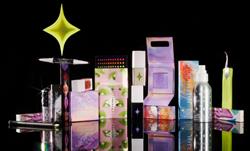 New York City-based independent creative company Mythology and Paperfoam won the Plastic-Free Innovation of the Year at the 2023 Dieline Awards for its role in the development of the 100 percent recyclable cosmetic palette for the Half Magic line of cosmetics. The cosmetics range was developed by Donni Harvey, makeup artist for the “Euphoria” show on HBO. Harvey designed beauty products to be environment-friendly and sustainable. Half Magic uses post-consumer materials and substrates that are designed to be recycled with ease, including the Paperfoam palette made from potato starch and cellulose.[Image Credit: © Half Magic]
New York City-based independent creative company Mythology and Paperfoam won the Plastic-Free Innovation of the Year at the 2023 Dieline Awards for its role in the development of the 100 percent recyclable cosmetic palette for the Half Magic line of cosmetics. The cosmetics range was developed by Donni Harvey, makeup artist for the “Euphoria” show on HBO. Harvey designed beauty products to be environment-friendly and sustainable. Half Magic uses post-consumer materials and substrates that are designed to be recycled with ease, including the Paperfoam palette made from potato starch and cellulose.[Image Credit: © Half Magic]
POLICY, REGULATION & LEGAL
Paper Packaging Industry Opposes Proposed Amendments To EU’s Packaging Waste Regulation
.jpg&width=250&height=167) Paper-based packaging industries have expressed concern regarding proposed amendments to the European Union’s Packaging & Packaging Waste Regulation. The UK Cardboard Industry is opposing the amendments that would likely increase plastic packaging by 4 million tons by 2030. Paper industry groups have also claimed that the proposed amendments go against the EU’s environmental goals as defined in the Green Deal and Circular Economy Action Plan.[Image Credit: © claudio_schwarz_6fxfFSa_SIc_unsplash]
Paper-based packaging industries have expressed concern regarding proposed amendments to the European Union’s Packaging & Packaging Waste Regulation. The UK Cardboard Industry is opposing the amendments that would likely increase plastic packaging by 4 million tons by 2030. Paper industry groups have also claimed that the proposed amendments go against the EU’s environmental goals as defined in the Green Deal and Circular Economy Action Plan.[Image Credit: © claudio_schwarz_6fxfFSa_SIc_unsplash]
Scotland Postpones Implementation Of DRS To October 2025
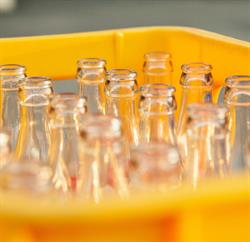
Scotland’s Government has postponed its proposed Deposit Return Scheme to October 2025. MSP Lorna Slater claimed before the Scottish Parliament that the UK Government “sabotaged” the DRS by excluding glass from the nationwide scheme set to be implemented by 2025. Slater said the UK Government’s failure to provide guidance forced the Scottish Government to delay the DRS implementation. Industry organizations in Scotland are supporting the delay, while some businesses are preparing to sue the Scottish Government over the DRS confusion.[Image Credit: © jasper benning on Unsplash]
Delegates Agree On Key Elements Of Proposed Plastics Treaty At Paris Round Of Talks
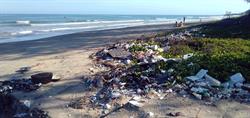 Representatives from 180 countries have agreed on key aspects of the proposed legally binding treaty to regulate plastic during a United Nations-sponsored meeting in Paris. Other stakeholders, including civil society groups, waste collectors, and a coalition of scientists, also attended the meeting, which almost fell apart due to accusations of exclusion and industrial lobbying. The proposed treaty could take effect in 2025 and would deal with the yearly 400-million-tonne plastic problem.[Image Credit: © Sergei Tokmakov, Esq. from Pixabay ]
Representatives from 180 countries have agreed on key aspects of the proposed legally binding treaty to regulate plastic during a United Nations-sponsored meeting in Paris. Other stakeholders, including civil society groups, waste collectors, and a coalition of scientists, also attended the meeting, which almost fell apart due to accusations of exclusion and industrial lobbying. The proposed treaty could take effect in 2025 and would deal with the yearly 400-million-tonne plastic problem.[Image Credit: © Sergei Tokmakov, Esq. from Pixabay ]
RESEARCH
Recycling Alone Comes Up Short In Solving Global Plastic Pollution
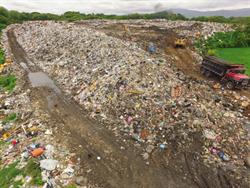 Recycling is not working as a solution to the world’s problem of plastic pollution. The poorest countries are collecting plastic waste, including imports from developed countries, that they cannot recycle. Greenpeace and the International Pollutants Elimination Network have released a report showing plastic with toxic chemicals can contaminate the recycling process. Data also revealed that only 6-9 percent of all plastic ever produced has been recycled, while only 2 percent of plastic waste is recycled in a closed loop. Manufacturers need to reduce their use of plastic and replace plastic with other materials, such as metal, glass, or paper.[Image Credit: © vianet ramos on Unsplash]
Recycling is not working as a solution to the world’s problem of plastic pollution. The poorest countries are collecting plastic waste, including imports from developed countries, that they cannot recycle. Greenpeace and the International Pollutants Elimination Network have released a report showing plastic with toxic chemicals can contaminate the recycling process. Data also revealed that only 6-9 percent of all plastic ever produced has been recycled, while only 2 percent of plastic waste is recycled in a closed loop. Manufacturers need to reduce their use of plastic and replace plastic with other materials, such as metal, glass, or paper.[Image Credit: © vianet ramos on Unsplash]
Report Says Four In Ten Of World’s Population Living In Places Incapable Of Managing Plastic Waste
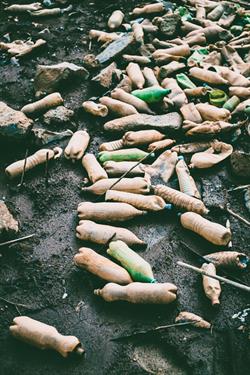
Since January 2023, more than 40 percent of the world’s population has been residing in places with no capabilities to manage the volume of plastic waste that is generated and abandoned. Also, research from EA Environmental Action forecast this figure will reach 60 percent by July 2023. Other details from the study showed that almost 69 million tonnes of plastic will be mismanaged in 2024, compared with the current 43 percent. EA Environmental Action is calling on national governments to come up with policies aimed at reducing plastic consumption, improving waste management and stopping the importation of plastic waste from other countries.[Image Credit: © Julia Joppien on Unsplash]
Scientists From Thailand, Malaysia Develop Pineapple Starch Packaging Film
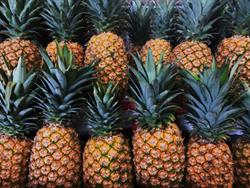 University researchers from Thailand and Malaysia have worked together to create an environment-friendly film for packaging applications from leftover pineapple stems. According to the study published in the “Membranes” journal, the scientists used high amylose starch extracted from pineapple stems as the matrix for the material, with glycerol and citric acid added to improve ductility and flexibility of the film. X-ray diffraction analysis showed a semi-crystalline structure, and the film exhibits water-resistant properties and a heat-sealing ability.[Image Credit: © Juno Jo on Unsplash]
University researchers from Thailand and Malaysia have worked together to create an environment-friendly film for packaging applications from leftover pineapple stems. According to the study published in the “Membranes” journal, the scientists used high amylose starch extracted from pineapple stems as the matrix for the material, with glycerol and citric acid added to improve ductility and flexibility of the film. X-ray diffraction analysis showed a semi-crystalline structure, and the film exhibits water-resistant properties and a heat-sealing ability.[Image Credit: © Juno Jo on Unsplash]
World Needs To Do More Than Recycling To Solve Plastic Pollution Problem
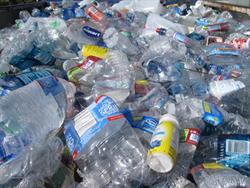 Recycling plastic waste is not a guaranteed solution to the world’s problem of plastic pollution. While some quarters present the circular economy in plastics industry as the “magic bullet”, new evidence suggests failings in the idea, including a report by Greenpeace highlighting that recycled plastic “can be even more toxic”. Also, there are studies showing that the physical process of recycling plastic can produce certain toxic chemicals. There is a need for regulation to control products that can be manufactured from recycled plastics, as well as for innovation in using more sustainable polymers and chemicals.[Image Credit: © tanvi sharma on Unsplash]
Recycling plastic waste is not a guaranteed solution to the world’s problem of plastic pollution. While some quarters present the circular economy in plastics industry as the “magic bullet”, new evidence suggests failings in the idea, including a report by Greenpeace highlighting that recycled plastic “can be even more toxic”. Also, there are studies showing that the physical process of recycling plastic can produce certain toxic chemicals. There is a need for regulation to control products that can be manufactured from recycled plastics, as well as for innovation in using more sustainable polymers and chemicals.[Image Credit: © tanvi sharma on Unsplash]
Copyright 2026 Business360, Inc.

